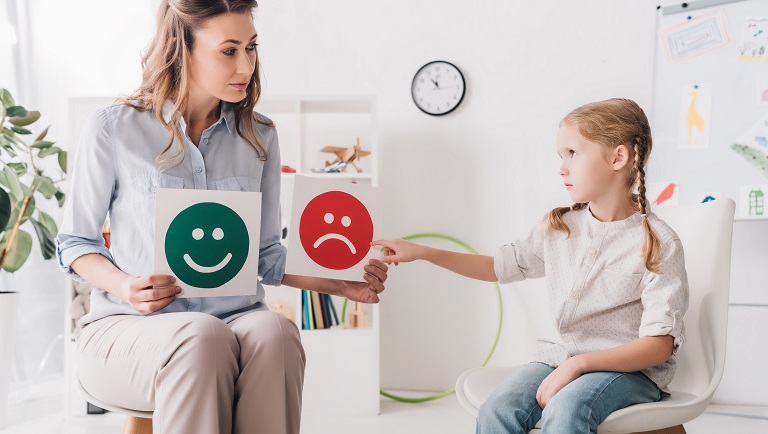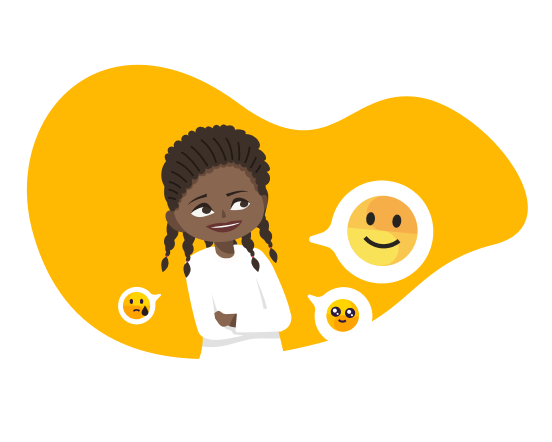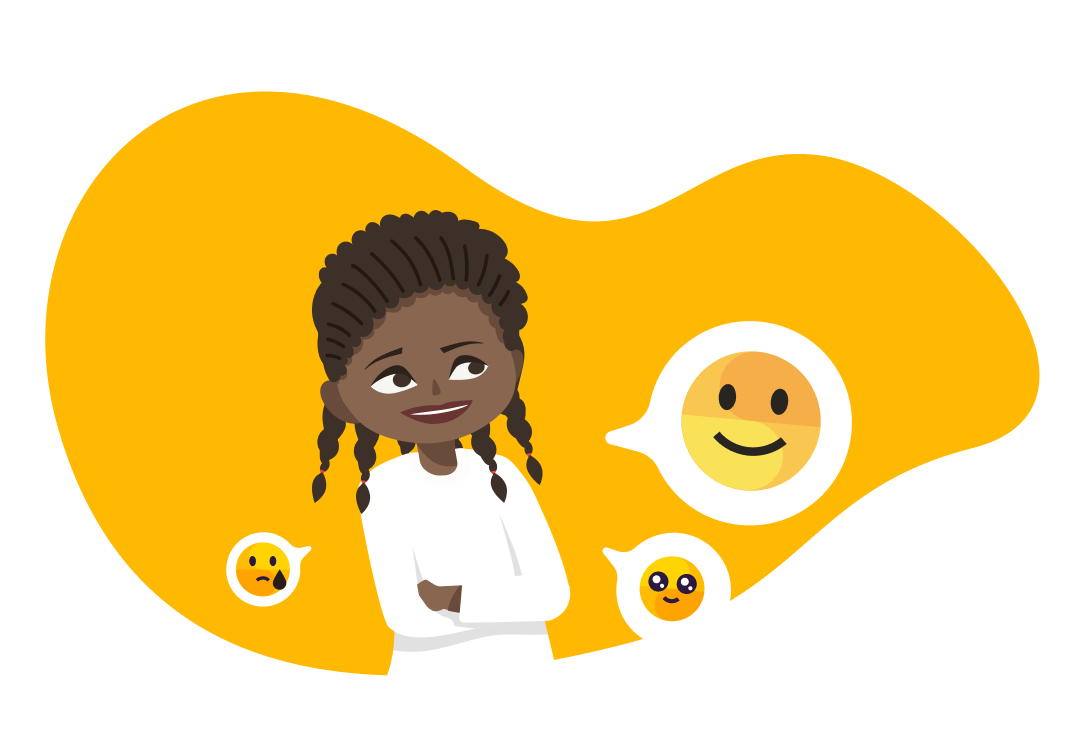
How to raise an emotionally intelligent child
Today, parents give great importance to the intellectual development of the child. For this, many programs have been developed aimed at teaching children from an early age. These are programs for teaching reading, learning foreign languages, and mastering numeracy. However, research results prove the harm and danger of artificial learning for the child’s emotional state.
Many parents miss out on the opportunity to develop emotional intelligence in their children. Unlike the most straightforward training programs, the formation and development of emotional intelligence require a special approach. If you do not deal with a child from an early age, he or she can develop serious emotional and psychological problems in adulthood.
What is emotional intelligence?
Emotional intelligence is the ability of people to control their emotions and feelings and recognize the mood of others to achieve their goals. Emotional intelligence helps to build harmonious and lasting relationships with society.
Scientists have paid attention to this feature of people relatively recently. In 1990, a scientific work prepared by John Mayer and Peter Salovey was devoted to the topic of studying EI. The study authors identified four important components of emotional intelligence:
- Emotional perception — children can recognize their own emotional state, feelings, and moods of others by gestures, voice intonation, facial expressions, and general behavior.
- Understanding emotions — the ability to determine the reasons for your emotional state and those around you, as well as find the relationship between thoughts and momentary emotions.
- Emotion management — the ability to suppress, awaken and redirect your own and others’ emotions to achieve the desired results.
- Using an emotional state to stimulate thoughts — improving brain function and increasing its activity due to their emotions.
The development of emotional intelligence lies in the child’s understanding and awareness of his emotions and the ability to manage and control them. If a child can master these components of emotional intelligence, it will be easier for him to find contact with other people. But most importantly, he will have a better chance of achieving his goals.
Do we need to develop emotional intelligence?
Of course, we do! The development of emotional intelligence enables the child to achieve the following results:
- Ability to control and manage their emotions and behavior — the lack of emotional intelligence in a child in a situation where he is deprived of his favorite toy, will lead to uncontrolled hysteria. But when the child is able to control his emotions, he realizes that in this situation a solution must be found. However, initially he understands that he needs to realize his personal attitude to the current situation.
- The ability to feel other people — the ability to experience different feelings and emotions will teach the child to be aware of and respect other people’s feelings. Thanks to this, the child will form responsibility for his actions, a sense of tact, and others.
Why is it important to develop emotional intelligence from childhood?
At a very early age, children are completely open to the world around them. But as they grow up, they study the world around them with interest. Therefore, their abilities are developing and improving every day, but at each age in different ways.

It is essential to develop a child’s intelligence in every direction from the moment of birth. At each age, a child’s emotional intelligence reaches a certain level.
- From birth to 3 years of age, emotional intelligence is formed in a child through touch and glance. Further, the development of emotions occurs through acquaintance with the feeling of pain, fear, and sadness. This happens at the time of teething or colic.
- The development of emotional intelligence in children aged 4 to 7 years occurs through the concept of the very names of the emotions that he experiences. At this age, children also try to determine what kind of emotions they are experiencing in a particular situation. Children acquire the ability to recognize, understand and control their feelings and to perceive the feelings of others.
Signs of low emotional intelligence in children
The degree of development of emotional intelligence is called the “emotional intelligence quotient” or “EQ”. There are several criteria that indicate a low level of EQ development.
Children with low emotional intelligence are unable to:
- empathize and sympathize with other people — they cannot accept help from other people because they are not able to understand their motives;
- control and manage their emotions — children do not fully understand what happens to them in moments of rage, sadness, joy;
- talk about feelings — they cannot answer a simple question: “What are you feeling now?”;
- to be friends and love — such feelings require mutual concessions and support from people, and children with insufficient EQ cannot experience these feelings;
- realize that their uncontrollable emotions often cause bad consequences — in such situations, they blame other people for everything.
At the moment, there are three methods to determine the level of emotional intelligence in children and adolescents:
- exploring specific abilities that emotional intelligence has;
- assessment of the level of EI by family members of the child;
- studies in which the child evaluates his own behavior and feelings.
Parents can determine the level of EI on their own. If this cannot be done, then a kindergarten, preschool, or school psychologist will help in solving this issue.
How does EI help in the educational process and affect the development of the child?
Study and education is an ongoing process. Children are constantly learning something new, and from every person: parents, school teacher, friends.
There are three factors for successful education and development of emotional intelligence:
- Personal needs of the child (children are very different, so learning success is very different).
- Supporting the child by family members and accepting his personal needs (family members should avoid criticizing the child).
- Educational programs and the influence of teachers (principles and features of the education system).
When a child gains new knowledge, he receives visible results, with which he confidently enters into adulthood:
- skills, knowledge, experience, and practical skills;
- an emotional trace and an assessment of one’s own behavior (this can be a feeling of disappointment or satisfaction);
- training in the ability to further self-study;
- memory of teachers and their behavior (for example, a kind teacher forms in a child a feeling of kindness, decent — a sense of decency, etc.);
- the experience that the child has gained with other children in the learning process (this teaches the child to perceive other people’s emotions and behavior to delve into the essence of their problems).
Tips for parents to develop high emotional intelligence in a child
Parents need to understand that each emotion has its own advantages and disadvantages — there are no good or bad emotions. Therefore, the child must experience all existing emotions. This will help him develop harmoniously, fully interacting with the surrounding people.

Only if the child understands and “lives” his own and others’ emotions he will be able to independently create, manage and change the world around him for the better. For a child to learn this, parents must help him develop emotional intelligence.
Perception of your own feelings and sensations
At this stage, children learn that the world around them is full of different emotions. They begin to listen to their feelings, perceive them, and become aware.
At this stage, parents should:
- watch cartoons with the child and read fairy tales to him, filled with bright emotional colors;
- tell your child about emotions using pictures, illustrated books;
- take an interest in the child’s mood and emotional state on a daily basis;
- tell the child about their own feelings and experiences in different situations.
Perception of the feelings and sensations of others
At this stage, the child realizes that feelings and emotions are also present in other people. He learns to understand the feelings other people may have, as well as to empathize and support them in difficult situations.
Parents need:
- behave naturally, avoid pretending “ideal people” out of yourself, so that the child can clearly see what emotions you experience in anger, joy, oppression, etc.;
- develop a sense of empathy and compassion in the child, demonstrating this by example;
- discuss the emotions that the characters of cartoons and fairy tales experience so that the child independently determines which emotions can be shown and which ones can be tried to control.
Controlling your behavior
As a child becomes aware of his emotions and feelings, he will learn to control his emotional state.
Parents should teach the child:
- listen to your feelings and feelings;
- effective ways to manage anger;
- cheer yourself up, even in a very bad emotional state.
Interacting with others to achieve your goals
To become a successful, purposeful, and happy member of society, a child needs to learn how to interact with other people. He needs to be taught to establish interpersonal relationships, provide support in difficult situations, be in a team and avoid conflicts. So the child will be able to achieve their goals, self-actualize in life and society, and successfully climb the career ladder.
Parents should develop in their child:
- communication skills through games, reading literature, and watching films together on the formation of friendly relationships;
- independence, a certain level of self-esteem, as well as self-confidence, so that the child understands the magnitude of responsibility for the actions he does.
Emotional Intelligence Games

Play this with your child to develop emotional intelligence.
Images of animals
Tell your child to visualize their favorite animal and show the emotions they have for them. Then have the child try to determine what emotions he experienced and for what reason they have arisen. If the child experienced joy, then let him name the factors that caused him this feeling.
The ball game
Throw the ball to the child so that he catches him, and then voice his emotions that he experiences during the game. This is good when your child is able to pick up associations to the evoked positive emotions. In this case, experiments can be carried out so that the child learns to understand and be aware of negative emotions (sadness, surprise, anger, and others).
Games with pictograms
To play this game with your child, you will need cards with bright illustrations that display emotions — pictograms. The cards should be turned upside down, and the child should be asked to choose any of the cards. Then you need to ask the child to demonstrate the emotion that is shown in the picture. The one who guessed what the child is showing takes the next card.
The “getting rid of anger and negativity” game
In the process of playing, the child learns to be aware of and control his emotions, as well as to get rid of negativity. Before playing with your child, be sure to ask him what feelings and emotions he is experiencing right now. If he is sad or offended by someone, ask him to put those emotions in a bag. As soon as the child gets rid of negative emotions, the bag needs to be tied up and put aside. Now take another bag and ask the child to mentally pull out all the positive emotions that he wants.
The “I feel happy when…” game
Parents and their children should take turns talking about when they feel happy or upset, why they are surprised, upset, or afraid. So the child will be able to understand in what situations a person may experience certain emotions and how to cope with them.
To sum up
To raise a successful, confident, and happy child, parents need to teach him to live in harmony with feelings and the world around him. Teach your child to perceive himself and the emotions of the surrounding people.
Emotional parenting of a child requires patience and personal involvement from parents. Do not ignore and criticize the expression of negative emotions. It is essential to be open in communication with the child, to help him find a common language with himself and teach him to direct negative emotions in the right direction.

new engaging articles



